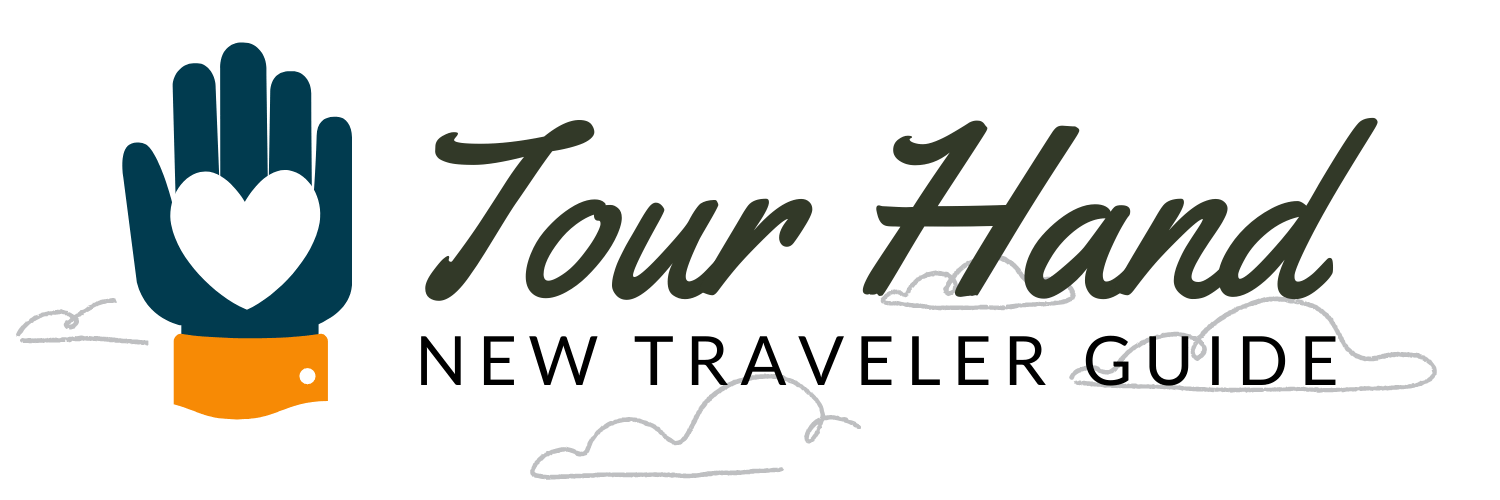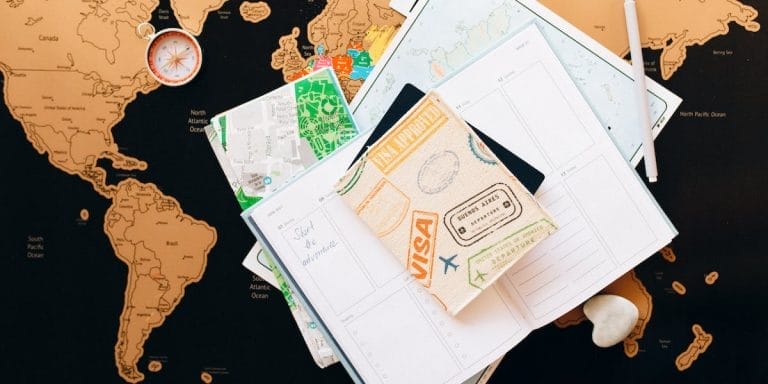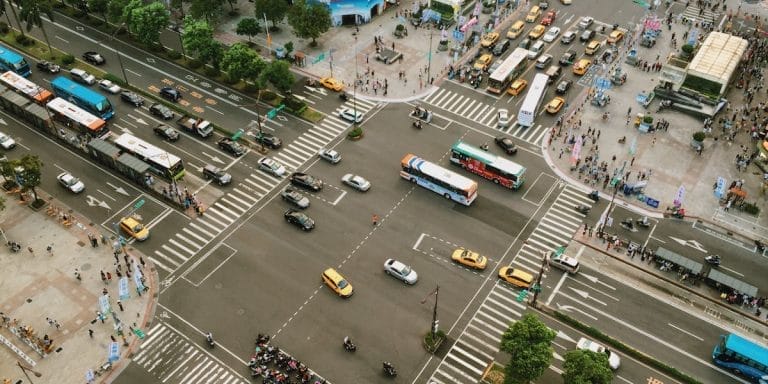Exploring the Captivating Countries of Asia
Are you planning an exciting journey to one of the captivating countries in Asia? Get ready to embark on an unforgettable adventure filled with rich cultural experiences, breathtaking landscapes, and mouthwatering cuisines. As you prepare for your trip, it is essential to understand the current significance and global impact of traveling to Asia.
Asia, the largest and most populous continent on Earth, is a diverse and vibrant region that attracts millions of tourists each year. From the bustling streets of Tokyo to the ancient temples of Angkor Wat, Asia offers a myriad of attractions that cater to every traveler’s interests. Whether you are seeking spiritual enlightenment, historical wonders, or simply a relaxing beach getaway, Asia has it all.
Furthermore, Asia plays a significant role in shaping the global economy, politics, and culture. With countries like China, Japan, and India emerging as major players on the world stage, understanding the current dynamics of these nations becomes crucial. By immersing yourself in the local customs, traditions, and social norms, you not only enrich your own travel experience but also contribute to fostering cross-cultural understanding and appreciation.
Moreover, traveling to Asia allows you to witness firsthand the impact of globalization and technological advancements. From the bustling metropolises of Hong Kong and Singapore to the rural villages in Nepal and Vietnam, you will witness the coexistence of ancient traditions and modern innovation. This fusion creates a unique and dynamic environment that is both awe-inspiring and thought-provoking.
As you prepare for your journey, it is important to research and plan accordingly. Familiarize yourself with the local customs, visa requirements, and health precautions to ensure a smooth and hassle-free trip. Additionally, consider learning a few basic phrases in the local language to facilitate communication and show respect for the local culture.
So, get ready to embark on a life-changing adventure as you explore the wonders of Asia. Pack your bags, open your mind, and prepare to be captivated by the beauty, diversity, and global significance of this enchanting continent.

Imagine stepping into a world where ancient traditions blend seamlessly with modern innovation, where vibrant cultures and breathtaking landscapes await your exploration. As you prepare for your journey to the captivating countries of Asia, be prepared to be enchanted by the rich tapestry of experiences that lie ahead. From the bustling streets of Tokyo to the serene temples of Angkor Wat, Asia beckons with its allure and promises an adventure like no other.
But embarking on this unforgettable journey requires careful planning and preparation. Understanding the significance and global impact of traveling to Asia is essential. From its role in shaping the global economy to its contribution to cross-cultural understanding, Asia holds a wealth of opportunities for exploration and discovery.
Researching the local customs, visa requirements, and health precautions is crucial to ensure a smooth and hassle-free trip. By immersing yourself in the local culture and learning a few basic phrases in the local language, you not only show respect but also enhance your travel experience. So, pack your bags, open your mind, and get ready to embark on a life-changing adventure as you delve into the wonders of Asia.
To truly grasp the intricacies of preparing for your trip to Asia, it is important to delve deeper into understanding the local customs, visa requirements, and health precautions. Researching these aspects will ensure a smooth and hassle-free journey, allowing you to fully immerse yourself in the beauty, diversity, and global significance of this enchanting continent.

Research your destination
Before embarking on your trip, it is essential to thoroughly research your destination. This includes learning about the local culture, customs, and traditions, as well as any safety precautions or travel advisories that may be in place. Familiarize yourself with the local language and basic phrases to facilitate communication with the locals. Additionally, research the weather conditions during your travel dates to pack appropriate clothing and accessories.
Check visa requirements
Depending on your destination, you may need to obtain a visa before your trip. Check the visa requirements well in advance and ensure that you have all the necessary documents and paperwork ready. Some countries also require a valid passport with a certain amount of validity remaining, so make sure your passport meets these requirements as well.
Get vaccinated
Prior to traveling, it is crucial to check if any vaccinations are recommended or required for your destination. Consult with a healthcare professional or visit a travel clinic to receive the necessary vaccinations and medications to protect yourself from any potential health risks.
Make necessary bookings
Once you have finalized your travel plans, it is advisable to make all necessary bookings in advance. This includes flights, accommodations, transportation, and any activities or tours you wish to participate in. By booking ahead of time, you can often secure better deals and ensure availability, especially during peak travel seasons.
Pack wisely
When preparing for your trip, pack smartly by considering the activities you plan to engage in and the weather conditions of your destination. Make a checklist of essential items such as clothing, toiletries, travel documents, electronics, and any specific items required for your activities. Remember to pack light and only bring what is necessary to avoid excess baggage fees and unnecessary hassle during your journey.
Inform your bank and credit card company
Prior to traveling, notify your bank and credit card company about your trip to avoid any issues with your cards while abroad. Inform them of your travel dates and destinations to prevent any unexpected card blocks or fraud alerts. It is also advisable to carry multiple forms of payment, such as cash and different credit cards, in case of any unforeseen circumstances.
Secure travel insurance
It is highly recommended to purchase travel insurance before embarking on your trip. Travel insurance provides coverage for medical emergencies, trip cancellations, lost baggage, and other unforeseen events. Read the policy carefully to understand the coverage and ensure that it meets your specific needs and requirements.
Plan your itinerary
Create a rough itinerary for your trip, outlining the places you want to visit, activities you wish to partake in, and any reservations or bookings you have made. Having a plan in place will help you make the most of your time and ensure that you don’t miss out on any must-see attractions or experiences.
Learn about local customs and etiquette
Respect for local customs and etiquette is essential when traveling to a foreign country. Take the time to learn about the local customs, traditions, and social norms of your destination. This will help you avoid any cultural misunderstandings and show respect to the local community.
Stay organized and prepared
Prior to your trip, organize all your travel documents, including passports, visas, itineraries, and confirmations, in a secure and easily accessible manner. Keep digital and physical copies of important documents, such as passports and travel insurance, in case of any loss or theft. Additionally, familiarize yourself with the local emergency contact numbers and embassy details of your destination.

Researching your destination is crucial before embarking on a trip. This involves understanding the local culture, customs, and traditions, as well as any safety precautions or travel advisories. It’s also important to familiarize yourself with the local language and basic phrases for better communication with the locals. Additionally, researching the weather conditions during your travel dates will help you pack appropriately.
Checking visa requirements is essential, as some destinations may require obtaining a visa in advance. Make sure to check the visa requirements well in advance and gather all the necessary documents and paperwork. Also, ensure that your passport meets the validity requirements set by the country you’re visiting.
Getting vaccinated is a crucial step before traveling. Check if any vaccinations are recommended or required for your destination and consult with a healthcare professional or visit a travel clinic to receive the necessary vaccinations and medications.
Making necessary bookings in advance is advisable. This includes flights, accommodations, transportation, and any activities or tours you plan to participate in. Booking ahead of time can often secure better deals and ensure availability, especially during peak travel seasons.
When packing for your trip, consider the activities and weather conditions of your destination. Make a checklist of essential items and pack light to avoid excess baggage fees and unnecessary hassle.
Inform your bank and credit card company about your trip to avoid any issues with your cards while abroad. Notify them of your travel dates and destinations to prevent unexpected card blocks or fraud alerts. It’s also recommended to carry multiple forms of payment, such as cash and different credit cards, in case of any unforeseen circumstances.
Purchasing travel insurance is highly recommended. It provides coverage for medical emergencies, trip cancellations, lost baggage, and other unforeseen events. Read the policy carefully to understand the coverage and ensure it meets your specific needs.
Plan your itinerary by outlining the places you want to visit, activities you wish to partake in, and any reservations or bookings you have made. Having a plan in place will help you make the most of your time and ensure you don’t miss out on any must-see attractions or experiences.
Respect for local customs and etiquette is essential. Take the time to learn about the local customs, traditions, and social norms of your destination to avoid cultural misunderstandings and show respect to the local community.
Stay organized and prepared by organizing all your travel documents, including passports, visas, itineraries, and confirmations. Keep digital and physical copies of important documents in case of loss or theft. Familiarize yourself with the local emergency contact numbers and embassy details of your destination.

It is also crucial to research and understand the local customs and traditions of the country you are visiting. This will help you avoid any cultural misunderstandings or offensive behavior. Additionally, it is advisable to pack appropriate clothing and essentials based on the climate and activities you plan to engage in during your trip. It is always better to be prepared for any unforeseen circumstances, so it is recommended to have travel insurance that covers medical emergencies and trip cancellations. Lastly, make sure to inform your bank and credit card companies about your travel plans to avoid any issues with accessing your funds while abroad.

Case Study 1: Informing the Bank
John is planning a trip to Europe for two weeks. He knows that it is important to inform his bank about his travel plans to avoid any issues with accessing his funds while abroad. He calls his bank and provides them with the dates and destinations of his trip. The bank updates his account information and assures him that his cards will work seamlessly during his travels. As a result, John can enjoy his trip without worrying about any financial inconveniences.
Case Study 2: Credit Card Company Assistance
Sarah is getting ready for a backpacking adventure in Southeast Asia. She is aware of the importance of informing her credit card companies about her travel plans. However, a few days before her departure, Sarah realizes that she forgot to contact one of her credit card companies. Worried about potential issues, she calls the customer service helpline and explains her situation. The representative assures her that they will make a note of her travel plans and monitor her card activity to prevent any fraudulent transactions. Thanks to the credit card company’s assistance, Sarah can embark on her trip with peace of mind.
Case Study 3: Uninformed Bank Leads to Card Blockage
Mark is excited about his upcoming business trip to Japan. However, he forgets to inform his bank about his travel plans. During his first day in Tokyo, Mark tries to withdraw cash from an ATM but his card gets declined. Panicked, he contacts his bank and discovers that his account was temporarily blocked due to suspicious activity. It takes several hours of phone calls and verification procedures to resolve the issue. Mark learns the importance of informing the bank in advance to avoid any disruptions in accessing his funds while traveling.
Understanding the importance of preparing for a trip by informing the bank and credit card companies can prevent financial inconveniences and ensure a smooth travel experience.

Preparing for a trip by informing the bank and credit card companies is crucial to avoid financial inconveniences while traveling. These case studies highlight the importance of proactive communication with financial institutions. John’s experience demonstrates the ease of informing the bank in advance, ensuring a seamless access to funds during his trip. Sarah’s situation emphasizes the importance of contacting all credit card companies to prevent any potential issues. On the other hand, Mark’s uninformed bank led to a card blockage and a stressful experience in Japan. These examples highlight the challenges travelers may face when they overlook the importance of informing their financial institutions.
In the future, advancements in technology and communication may simplify the process of informing banks and credit card companies about travel plans. Perhaps, automated systems or travel notification apps could streamline the process, reducing the risk of disruptions. Additionally, financial institutions may develop more sophisticated fraud detection systems to provide enhanced security and peace of mind for travelers.
Overall, being proactive and informing the bank and credit card companies about travel plans is essential for a smooth travel experience. It is important for travelers to stay informed about the necessary steps to take and to utilize any available resources to ensure their financial transactions abroad go smoothly.
Embarking on a new journey is always exciting, but it can also be a bit overwhelming. However, with proper preparation, you can turn those daunting tasks into manageable steps that will ensure a smooth and enjoyable adventure. Here are some key points to keep in mind:
Research your destination:
Before setting off, it’s crucial to gather as much information as possible about your destination. Learn about the local customs, traditions, and laws to avoid any cultural misunderstandings. Find out about the weather conditions, popular attractions, and local cuisine to make the most of your trip.
Make a detailed itinerary:
Having a well-planned itinerary is essential to make the most of your time abroad. List down the places you want to visit, activities you wish to do, and any reservations you need to make. This will help you stay organized and ensure you don’t miss out on anything important.
Check your travel documents:
Ensure that your passport is valid for at least six months beyond your planned return date. Check if you need a visa or any other travel documents for your destination. It’s always a good idea to make copies of your important documents and keep them in a separate place, in case of any unforeseen circumstances.
Get vaccinated:
Depending on your destination, you may need certain vaccinations before traveling. Research the required immunizations and consult with a healthcare professional to ensure you are up to date with all necessary shots. Your health and well-being should always be a top priority.
Secure travel insurance:
Travel insurance is a must-have for any trip. It provides coverage for medical emergencies, trip cancellations, lost luggage, and other unforeseen events. Be sure to read the policy thoroughly and choose one that suits your needs. It will give you peace of mind throughout your journey.
Pack wisely:
When it comes to packing, less is often more. Make a checklist of essential items such as clothing suitable for the weather, toiletries, medications, and any electronics you may need. Don’t forget to pack a universal adapter, a first aid kit, and a photocopy of your passport. Remember, you can always buy things you need on the road.
Inform your bank and credit card company:
Notify your bank and credit card company about your travel plans to avoid any issues with accessing your funds. Inquire about any international transaction fees or ATM withdrawal limits that may apply. It’s also wise to carry some local currency for immediate expenses upon arrival.
Stay connected:
Having a reliable means of communication while traveling is important. Check if your mobile phone plan includes international roaming or consider getting a local SIM card. Additionally, research the availability of Wi-Fi in your destination and download any necessary maps or travel apps beforehand.
By following these key points, you can prepare for your trip with confidence and ensure a smooth adventure. Remember, proper preparation is the key to a successful and enjoyable journey!








